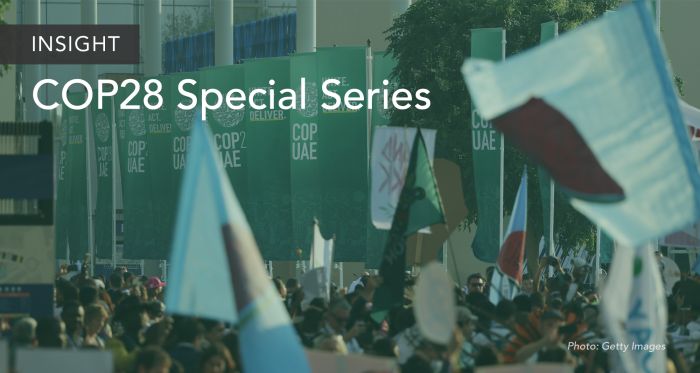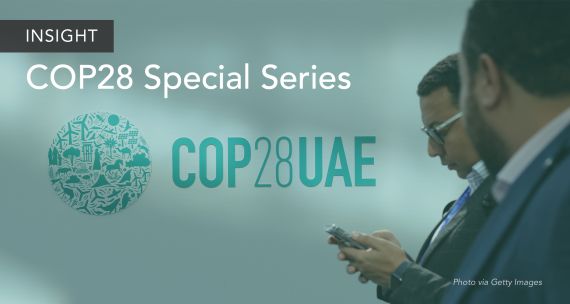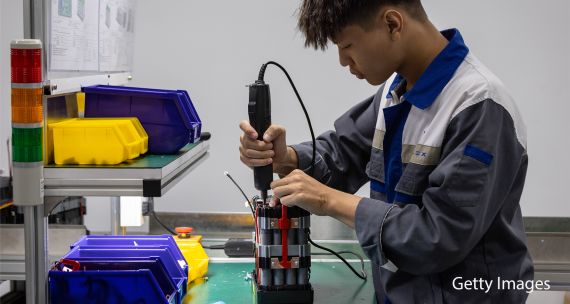The Takeaway
With the severe impacts of climate change being felt across South and Southeast Asia, adaptation — the adjustment of systems and behaviours to reduce the risks of a changing climate — is becoming more urgent. While climate adaptation took higher precedence at the 28th Conference of the Parties (COP28) to the UN Framework Convention on Climate Change (UNFCCC) in December 2023, serious shortfalls in planning and financing remain.
In Brief
- At COP28, signatories to the Paris Agreement established a framework for the Global Goal of Adaptation (GGA), eight years after the goal was first announced. The GGA sets targets for building resilience and reducing vulnerability to climate change. It also prioritizes the role of nature by, for example, building up mangroves to protect against storm surges. Discussions on the GGA’s financing component are expected to be taken up at COP29 in November 2024.
- According to the Global Stocktake (GST) — the inventory of parties’ commitments to the 2015 Paris Agreement — only 51 countries have submitted National Adaptation Plans (NAPs). Of these, only six are in the Asia Pacific: Cambodia and Timor-Leste in Southeast Asia, Nepal and Sri Lanka in South Asia, and Fiji and Kiribati in Oceania. The GST Outcome document has called for all parties to implement their respective “country-driven and gender-responsive" NAPs by 2030.
- Adequate adaptation financing is crucial for countries’ resilience planning. However, international agreement on financing these efforts has been elusive. The UN Adaptation Gap Report found that in 2021, adaptation financing for developing nations was only C$28.4 billion, C$495 billion short of what was needed for that year. The UN Adaptation Fund, one of several initiatives aimed at narrowing this gap and supporting developing nations in implementing local adaptation projects, managed to secure only half of its target of C$400 million.
- One challenge in bridging the gap in adaptation finance, from an investment perspective, lies in the difficulty of measuring the impacts of adaptation. Another challenge is allocation: a 2023 OECD report noted that of the climate funds provided to developing countries between 2013 and 2021, only 27 per cent were allocated to adaptation projects.
Implications
Without an adaptation strategy, vulnerable nations will continue to face the brunt of a warming climate. States in Asia, a region particularly prone to natural disasters and rising sea levels, suffered C$49 billion worth of economic damages in 2022 alone. For example, cyclones hitting Bangladesh, one of the region’s most impacted countries, cost that nation C$1.35 billion each year. Strengthening nations’ adaptive capacity is crucial for protecting against non-economic loss and damages as well, including the preservation of local Indigenous knowledge, ecosystems, and cultural heritage.
Adaptation finance is competing with other climate initiatives for support. One of the successes of COP28 was the establishment of a Loss and Damage Fund (LDF) to help vulnerable countries in their efforts to address the impacts of climate change. Canada advocated for setting up the LDF and pledged C$16 million toward its start-up costs. However, ‘loss and damage’ refers to efforts to address the impacts of climate change after those impacts are experienced and does not necessarily include the resilience planning at the core of adaptation. There are already concerns that adaptation financing has suffered due to international financial commitments shifting towards the LDF.
What’s Next
- 1. Urgent need for adaptation is opportunity for Canada
In December 2023, FinDev, Canada’s development finance institution, in partnership with Japanese financial conglomerate Mitsubishi UFJ Financial Group, launched the GAIA project, a soon-to-be-implemented public-private blended climate finance scheme for addressing the adaptation needs of developing nations. The C$2-billion project, consisting of private sector investments, will dedicate 70 per cent of its funds to adaptation projects and provide long-term loans and equity investments to the 19 most climate-vulnerable nations, including India, Indonesia, and the Philippines.
- 2. Southeast Asia program prioritizes biodiversity protection
Given nature’s ability to regulate the world’s climate, the protection and preservation of nature will play a vital role in the success of climate adaptation efforts. To expand the investments and startups in this niche, but critical, sector, Singapore-based impact investor Silverstrand Capital launched the Biodiversity Accelerator+ program in 2023. Aimed at businesses with a “biodiversity-positive” impact, the initiative focuses on preserving and restoring nature through capital, training, and monitoring. While the program is global in its scope, preference will be given to companies based or with operations in Southeast Asia.
• Produced by APF Canada's Southeast Asia team: Hema Nadarajah, Program Manager; Sasha Lee, Analyst; and, Alberto Iskandar, Analyst. Editor: Ted Fraser. Graphic Design: Chloe Fenemore.







